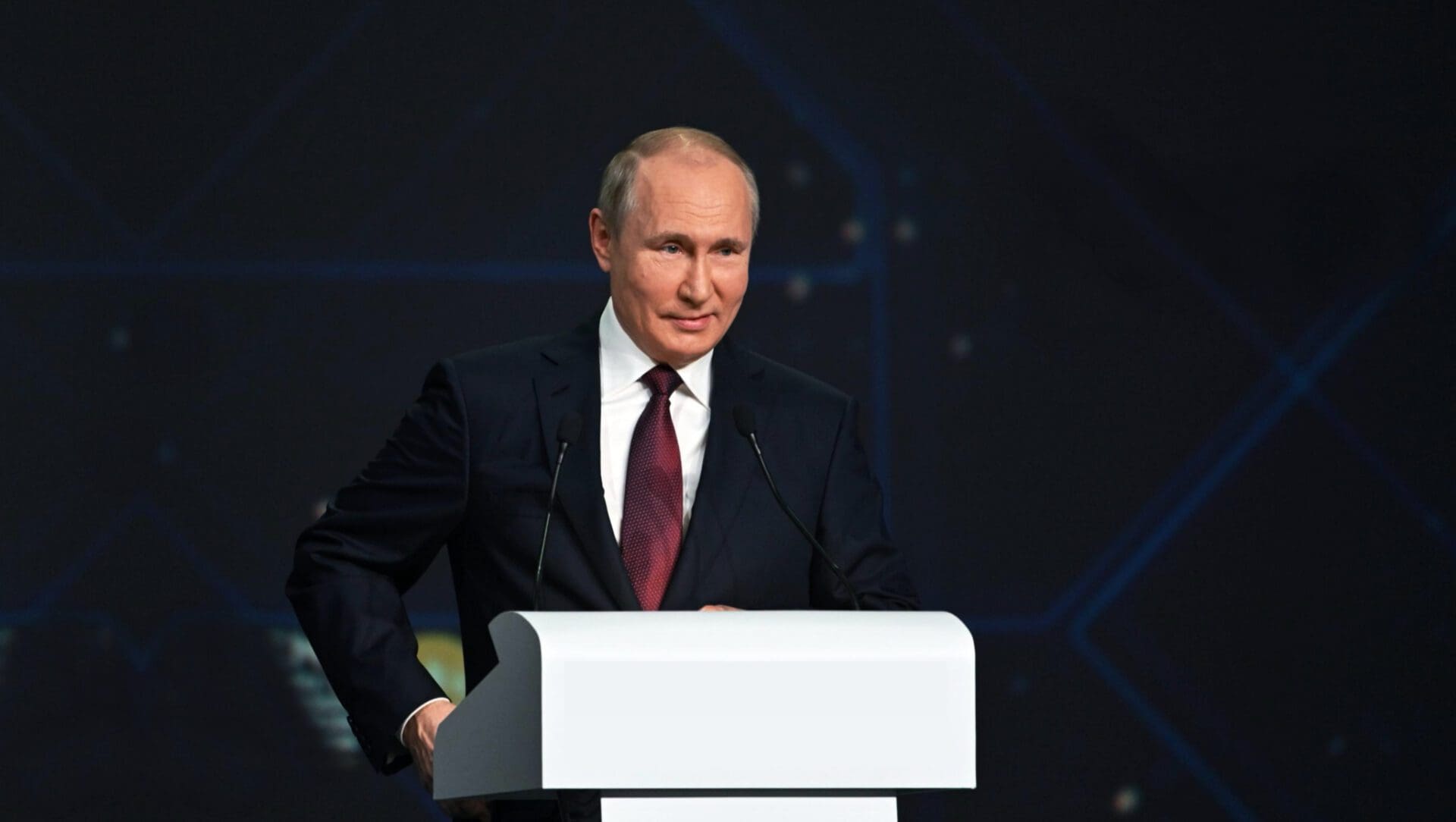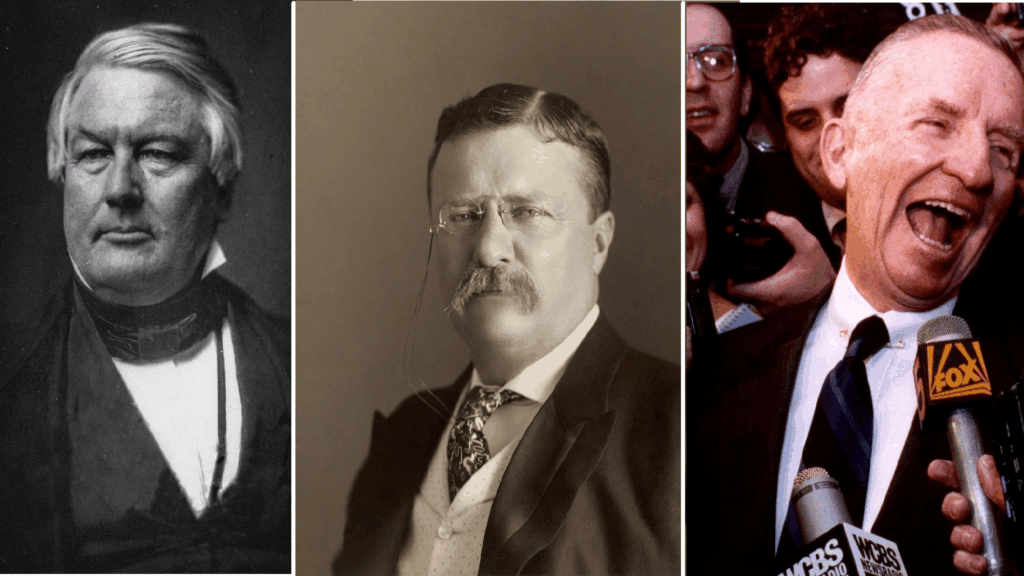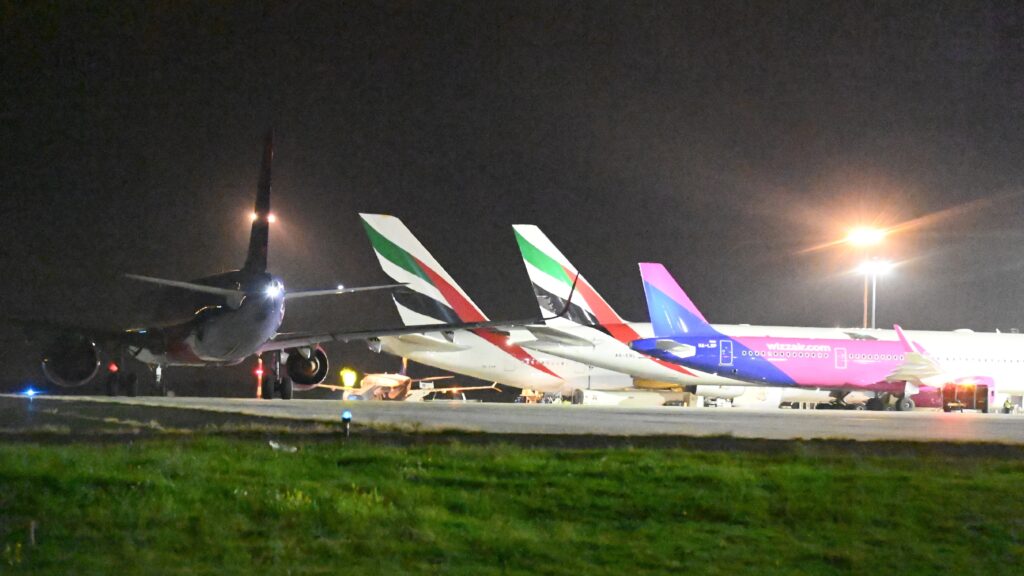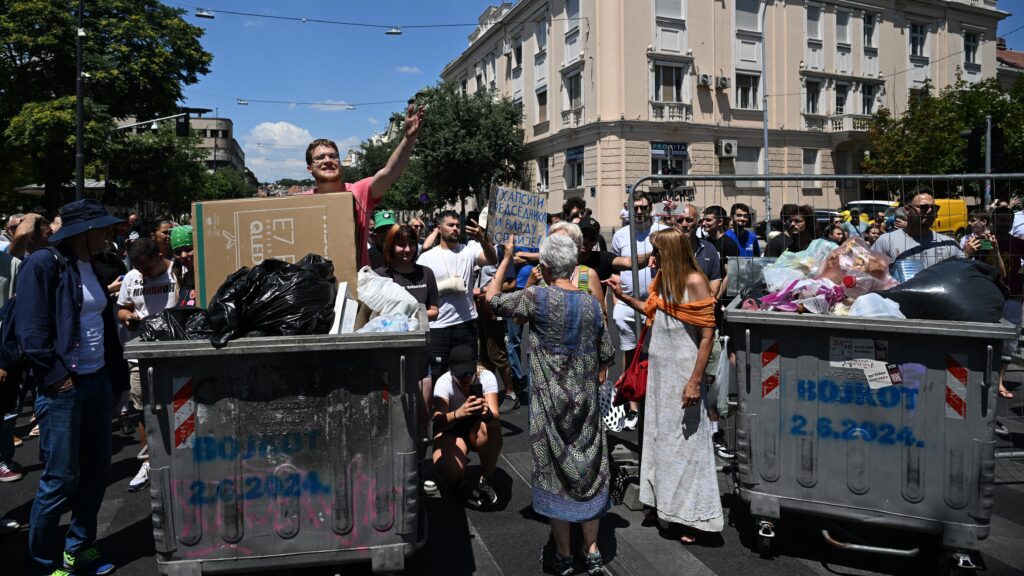References to history have always been an integral part of Putin’s, just like many other politicians’, speeches. Very early on in his presidency (at the beginning of the 2000s) his references to ’history’ were mostly limited to the previous decade. Putin depicted the 1990s as a period of chaos, instability, economic decline, and the country’s international humiliation. The references to the troubled 1990s are still an integrated part of his speeches—even today when he speaks of history (for instance, in relation to Ukraine) he mentions how after the dissolution of the USSR in the early 2000s Russia first stabilised, then economically prospered, and now it is time for the restoration of its global strength, as a final step to correct the wrongs of the 1990s’. However, by now the President’s speeches about history have come to look beyond the 1990s. There are three regularly recurring historical themes, the Great Patriotic War, the Russian Empire and Ukraine, which over the years have become very important pillars of the Russian President’s historical narrative.
The Great Patriotic War
During the Great Patriotic War (1941–1945), the Soviet Union lost around 17 per cent of its population or 27 million people to the Nazi invasion. Due to the unprecedently high death toll, the Great Patriotic War’s importance in contemporary Russian historical narratives is understandable. On the other hand, the overemphasis of the Patriotic War (which is by now undoubtedly a core of Russian national identity) has unavoidably led to the reinterpretation of World War II events that do not fit the narrative of heroism and victimhood. Obviously, the Molotov-Ribbentrop Pact poses the biggest challenge for the heroization of the Soviet Union’s role in defeating Nazi Germany. The Pact was a non-aggression treaty signed on the eve of World War II between the Soviet Union and Nazi Germany partitioning Poland between the two countries. As the existence of this pact undermines to a great extent the image of the USSR as having fought a heroic war against the evil fascist power, the Soviet Union–until its very last moments–insisted that the Pact (and the original documents released by Germany) were ‘American falsifications’. While Putin himself does not deny the existence of the agreement, he has provided various alternative interpretations as to what it was about. Underplaying its significance (and the fact that the Soviet Union did its fair share of occupying Poland just weeks after Nazi Germany invaded the country), Putin’s position is that the pact did not ‘reflect’ the will of the Soviet people but that of Stalin. By shifting the responsibility for the signing of the Pact entirely to one person, he is obviously attempting to purify the Soviet war effort against Nazi Germany.
The Empire
References to the Russian Empire also have a prominent place in the Russian President’s historical narrative. In terms of the eastward expansion of the country, the Russian Empire is now branded as a force for good that brought an advanced civilisation and technological development to the godforsaken frozen lands of Siberia. The westward expansion of the Empire, on the other hand, it is contextualised as ‘reuniting’ the lands of the former Kievan Rus, which in turn supports the narrative that the Belarusian, Russian and Ukrainian nations are ‘practically the same people’ (more about that later). By and large, the Empire’s role in Putin’s historical narrative is to represent continuity and underpin the idea of a ‘1000-year-old heritage’, great civilisational legacy and richness of today’s Russian Federation. Highlighting its achievements, Putin uses the Russian Empire as a source of legitimacy for today’s Russia.
Ukraine
While in the aftermath of Georgia’s invasion in 2008 Putin said that Russia respects Ukraine’s borders, since 2014 his position has dramatically changed. In a 2021 article he reiterated that the history of Russia and Ukraine (and Belarus) are not separable. These lands shared the same history under the Kievan Rus, and after the Rus collapsed, one of the main objectives of the Russian Empire was to reunite these lands that in the past were considered to belong to the same political entity. But it is historically inaccurate to use the word ‘Ukraine’, that literally meant to denote the ‘periphery’ or ‘edge’ of the Empire, to describe what today’s Ukrainian territories used to be in past centuries. The word ‘Little Russia’ (Малороссия) is a more ‘historically accurate’ term to describe the Ukrainian territories of today in the past—at least in Putin’s opinion. An even more recent addition to Putin’s views on history has been outlined in a series of television appearances that he has made since the beginning of the war (the most famous of which is the one hour long ‘history lesson’ broadcast just before the invasion). In these lectures, the Russian leader further pressed the point that ‘Ukraine’ did not exist as a coherent political entity before Soviet times. It was instead artificially ‘created’ by Lenin, and therefore, these lands, the culture that evolved there and the people who live there are an ‘inalienable part of’ Russian history. Soviet ‘social experiments’ that reinforced certain ethnic identities and national movements (that partially led to the USSR’s collapse) merely robbed ‘Russia’ of its legitimate parts, Putin argued.
One of the fallacies of employing this terminology to describe Ukraine’s past and relationship with Russia is that it disregards how identities were formed in the past. For a long time, religion was the most important aspect of people’s identity—and although it is true that these three nations share the Orthodox religion, it is inaccurate to equate a religion-based identity that informed state formation in the past, with an ethnicity- or nation-based identity that is the most important driving force of nation state formation today. Putin himself also recognises that the lands of the ‘Ancient Rus’ were united by the Orthodox faith and the ‘Old East Slavic’ (the language used in the 9th – 15th centuries from which Belarussian, Russian and Ukrainian all evolved) but he fails to explain how exactly the memory of an old language and a faith in today’s non-religious age could still determine the relationship of countries to each other, especially considering that fact that today political entities organise themselves (primarily) on national grounds and not on religious or linguistic grounds. Since the identity that used to be based on religion and language and which united the Kievan Rus and the Russian Empire is not the same identity (national identity) that informs political belonging in the 21st century, Ukraine cannot be viewed as ‘an inalienable part of’ Russia —not even within Putin’s own frame of reference.








